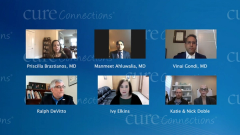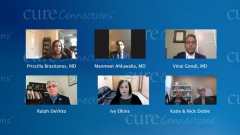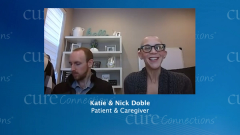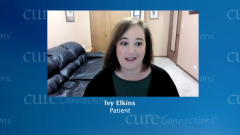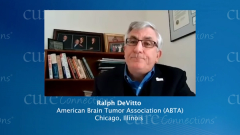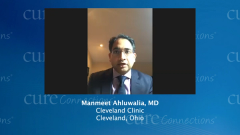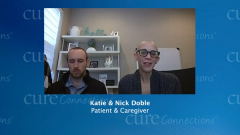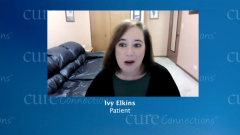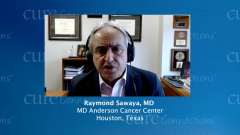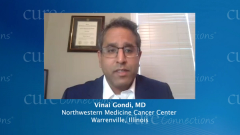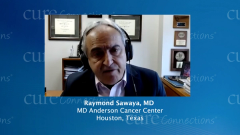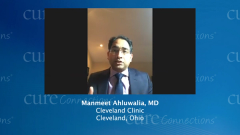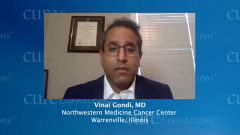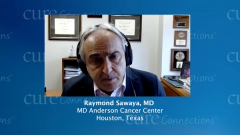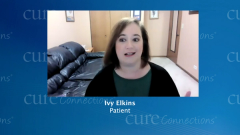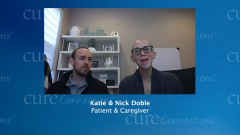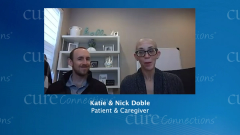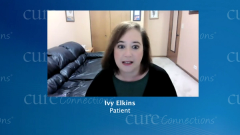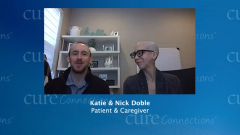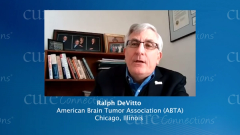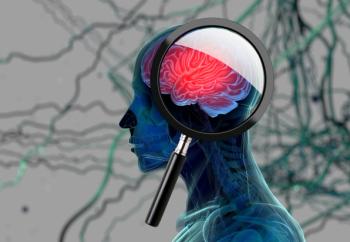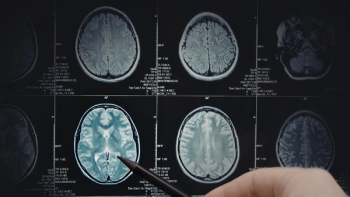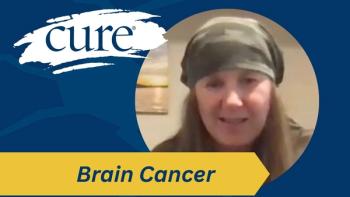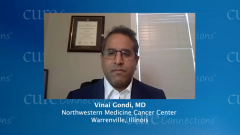
Personal Concerns With Treatment Options for Brain Metastases
Episodes in this series

Priscilla Brastianos, MD: Another question for Ivy and Katie, what was your biggest concern and biggest fears when the treatment goals and options were being presented to you?
Ivy Elkins: I think I had two main concerns. The first one was how well this medication that I was taking—I was thrilled to find out that I was going to be taking a targeted therapy medication, meaning a pill once a day as opposed to traditional chemotherapy or radiation. It just seemed so much easier. But my initial concern was how long was this going to work, if it worked for me at all? I was very worried about that. I was 47 years old when I was diagnosed, my husband and I had two boys, they were 10 and 13 years old at the time. I was a stay-at-home mom, so I did everything. I drove them everywhere, to school, to extracurricular activities, ran our household, and I was worried. Targeted therapy on average, I was hearing, could work for maybe a year. I was very worried about what would happen next and whether there would be another option for me after the one that I started on. I was also worried about the side effects and the impact of treatment on my daily life and my ability to care for my family.
I was fortunate when it came to side effects of the targeted therapy. Other than some mild issues, I didn’t really have anything happen. But that initial pain that I had in my neck when I was first diagnosed ended up being the biggest thing that my doctor was worried about. It was a large tumor high up on my cervical spine on my neck, and I visited a neurosurgeon, in addition to my thoracic oncologist and the radiation oncologist, on my first work-up appointment and there was some discussion about whether I might need to have surgery on my neck prior to starting the targeted therapy treatment. Again, the decision was made to start the targeted therapy treatment, but I ended up wearing, on the strong recommendation of the neurosurgeon, a neck brace for the first three months of my treatment, and having to frequently come back and have CT [computerized tomography] scans of my neck to make sure that my spinal column was no longer in danger of collapse because they were very worried about that.
That made it difficult for me to do a lot of things. I couldn’t drive, it made it difficult for me to do things in the home like laundry, cooking, etcetera. I immediately had to tell everyone that I had stage IV lung cancer, which was hard to do because people wanted to know why I was wearing a neck brace and they never expected that would be the answer. It brought my diagnosis really out to the public, and I felt myself constantly needing to explain what was going on to people, which was quite hard.
Priscilla Brastianos, MD: I would imagine how hard that was. Katie, what about you? What was your biggest concern and fear when treatment options and goals were presented to you?
Katie Doble: Is this specific to the brain metastases or in general? I think this whole time I’ve always said I’m just along for the ride. For me, I’ve been lucky that I’ve had breaks in treatment, and I recognize that a lot of patients with cancer are in this marathon fight where their body is constantly being beaten down. I was coming off of a long break from treatment. For me, I was getting used to the comfort of pretending like life was normal, so I was a bit irritated and thinking, “I don’t have time for this.” I was lucky. Honestly, I bounced back from Gamma Knife radiosurgery better than I did any other therapy or treatment I’ve ever had. So while it was not fun having four screws drilled into my skull, wearing headgear, and looking like a Transformer, the actual procedure was 17 minutes. The pre-scan was longer than the actual treatment itself.
One of the things I did was invited all my friends and family to send me a song that reminded them of our relationship, or a motivational song, and the night before the procedure, my dad and I sat up, and I made this playlist and we listened to music. I got through three songs. I was a little annoyed, I had more to play. But it was quick. Then that night we ordered pizza, and I was sitting at the kitchen table eating with my two caregivers, my husband and my dad. I had a banging headache the next day, but it was a quick recovery, and I felt very lucky in that sense, that we were able to address the issue, and I was able to then move forward and get back to my kind of normal life that I had been living.
Transcript Edited for Clarity

